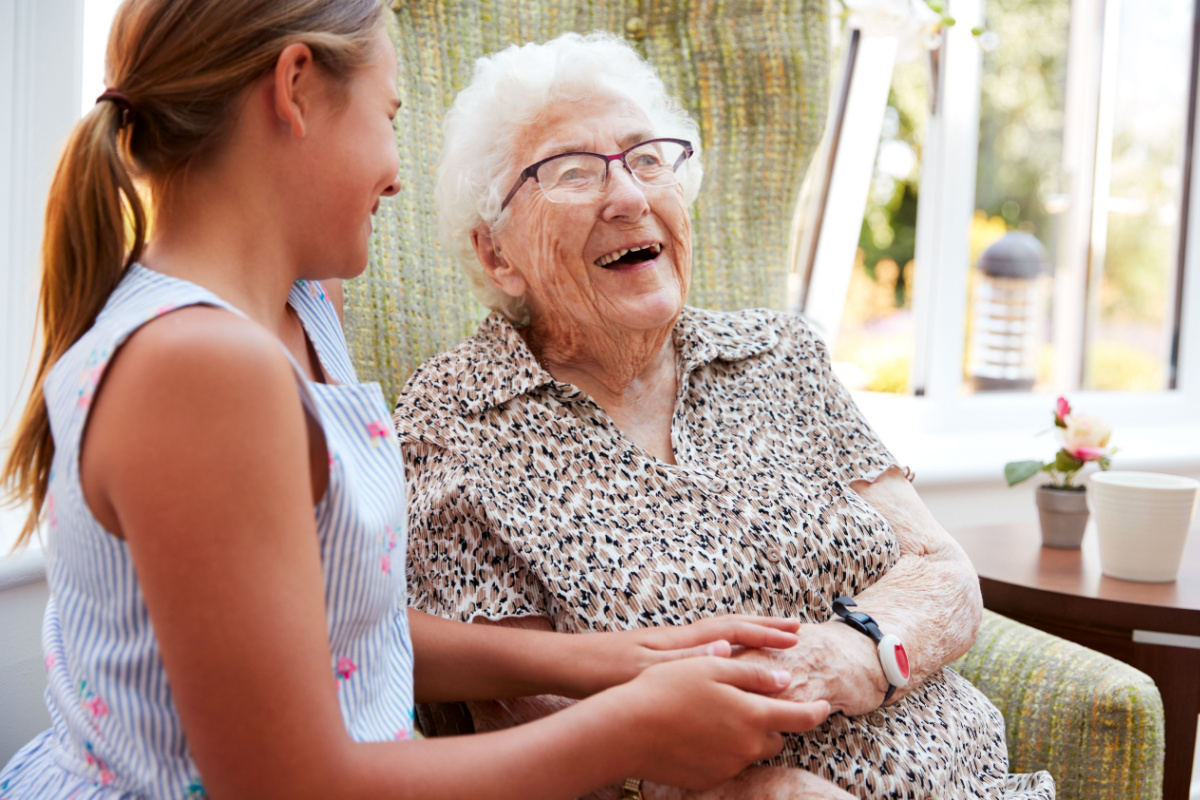If you’re a caregiver of your loved one, you’re familiar with the emotional toll it can take. Being a caregiver is a profound act of love and dedication, yet it often comes with a steep, invisible cost to the caregiver themselves. Many people assume the exhaustion and stress they feel are just part of the job, dismissing their chronic discomfort as something they should simply endure.
Two of the most common, painful feelings you might experience are caregiver guilt and caregiver burnout. While they often show up together, they are not the same thing. Over time, however, these pressures can escalate into a serious condition which affects your physical, emotional and mental health.
Recognizing the early signs of caregiver burnout or guilt and understanding its progression is crucial for your well-being and for maintaining your capacity to provide care. Ignoring the escalating stress and trying to “tough it out” will only lead to further depletion and make recovery much more difficult.
What Is Caregiver Guilt?
Caregiver guilt is that nagging feeling that you aren’t doing enough, that you should be a more patient person, or that you’re somehow failing your loved one. It’s an emotional response, usually to self-imposed high standards.
Common guilt-fueled thoughts:
- “I shouldn’t feel so angry or resentful.”
- “I should be able to manage everything without asking for help.”
- “I feel relieved when I get a break; that must make me a bad person.”
- “I feel like I’m not giving them the best care.”
While guilt is painful, it’s primarily an emotional state centered on thoughts and feelings. It doesn’t necessarily indicate a physical or psychological breakdown.
What Is Caregiver Burnout?
Caregiver burnout is a state of physical, emotional, and mental exhaustion. It’s more than just a bad day or feeling guilty; it’s a profound, chronic stress reaction that results in a fundamental change in your well-being and attitude toward your role.
Caregiver Burnout Symptoms: The Signs Of A Crisis
So, what is a common sign of caregiver burnout? While irritability is a major sign, burnout presents as a constellation of persistent problems across your life. If you want a full assessment, you might consider taking a caregiver burnout quiz.
Common signs of caregiver burnout and caregiver burnout symptoms include:
| Physical Signs | Emotional & Mental Signs | Behavioral Signs |
| Chronic fatigue and exhaustion | Persistent sadness, hopelessness | Withdrawing from friends/family |
| Frequent headaches or body aches | Loss of interest in hobbies | Neglecting your own health needs |
| Changes in appetite or sleep patterns | Overwhelming feelings of resentment | Increased use of alcohol or medication |
| Weakened immune system (getting sick often) | Cynicism, negativity, or lack of empathy | Snapping at or yelling at your loved one |
The Stages of Caregiver Burnout
Burnout isn’t a sudden event; it happens in stages of caregiver burnout. Knowing them can help you intervene early:
- The Passionate Stage: You dive in, feeling you must do everything, often ignoring your own needs.
- The Stagnation Stage: The initial energy fades. You begin to miss appointments or forget things. You feel tired, but you push on.
- The Withdrawal Stage: You feel isolated and resentful. Caregiving feels like a trap. This is where guilt and burnout often heavily overlap.
- The Burnout Stage: Complete exhaustion, helplessness, and hopelessness. You may no longer be able to function effectively in your role.
Telling the Difference: Guilt vs. Burnout
The key difference lies in the impact on your functioning and your energy levels:
| Guilt | Caregiver Burnout |
| Primarily an emotional problem. | A serious physical and psychological state of depletion. |
| You think you’re a bad caregiver. | Your exhaustion makes you a less effective caregiver. |
| It can be managed with reframing thoughts and realistic expectations. | Requires action—rest, delegation, and professional help. |
If you are just experiencing guilt, you likely still have the energy to go for a walk, meet a friend, or care for your own needs—you just feel bad about doing it. If you are experiencing burnout, you lack the physical and mental capacity to do those things, even if you wanted to.
When To Get Help

Guilt can be managed by setting realistic boundaries and adjusting your expectations. Caregiver burnout requires immediate, dedicated intervention.
How Long Does It Take To Recover From Caregiver Burnout?
Recovery is a journey, not a destination. How long does it take to recover from caregiver burnout varies greatly, but it can take weeks to months to fully replenish your physical and emotional reserves. It depends on the severity of the burnout and the changes you implement.
It’s time to get professional help (a therapist, counselor, or doctor) if you experience:
- Pervasive Hopelessness: You feel trapped, that things will never get better, or have thoughts of self-harm.
- Physical Collapse: You are constantly sick, cannot sleep, or have a chronic, unshakeable fatigue.
- Neglect: You are no longer able to provide a safe or adequate level of care, or you have started to resent your loved one to the point of lashing out.
Additionally, this is an article that that can help you dive in about caregiver burn out.
Ready To Trade Exhaustion For Empowerment?
You’ve recognized the signs of caregiver burnout and guild—that vital first step is complete. Now, don’t let the guilt hold you back from finding relief. Your well-being is the foundation of the care you provide, and you cannot pour from an empty cup.
The Oasis Senior Living communities located in Illinois and Michigan are dedicated to supporting caregivers and their loved ones with resources, guidance and community support designed to take part in the caring of your loved one.
Located in:
Michigan
Village of Clarkston
Norton Shores
Holt
Clio
Illinois
Plainfield
Streamwood
Frankfort
It’s time to put yourself on the care list.
Your health is not a luxury; it is the foundation of the care you provide. Getting help for burnout is not a failure—it’s the strongest, kindest thing you can do for yourself and the person you love.
Contact The Oasis Senior Living today at 773-492-8872 and start envisioning a life of greater comfort, engaging activities, and professional care. You can also begin exploring your options by booking a tour with the closest Oasis Senior Living at your current location.

Disclaimer: This article is for informational purposes only and is not a substitute for professional medical or mental health advice. If you are experiencing symptoms of burnout or distress, please consult a healthcare professional.




